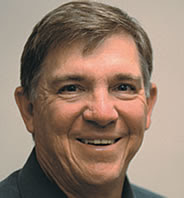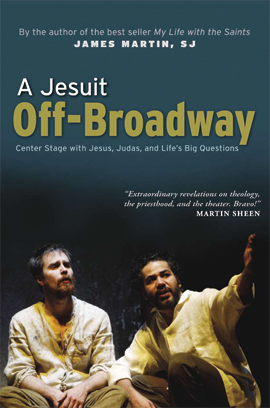"GOD AND GOLD,"
by Walter Russell Mead
Capitalism’s ability to raise the standard of living in the English-speaking world – and to spread British and American social and economic culture around the globe – owes no small part of its success to a religious element, perhaps even a religious foundation.
And religion can continue to play a role in humanity’s pursuit of peace and development.
That’s a key take-away from the reading of “God and Gold,” a compelling book that’s worth a slow, reflective read.
Author Walter Russell Mead, a U.S. foreign policy expert, forces readers to view the past 300 years of history from both an inward looking perspective and that of an outsider, forcing us to see how others see us.
Mead’s premise is that the rise of first British then American capitalism is the most important development in the history of the modern world, and that the capitalistic culture that the United States leads today may be an enduring one, unlike fallen empires of old.
He backs up his hypothesis with hundreds of pages of historical evidence, but maybe more important is his work to help us understand the challenges that our country faces today, especially from some of the Muslim faith who also champion a religious fervor but who – tied down by refusals to change and to be open and tolerant – have failed to take advantage of capitalism’s fruits.
Mead moves readers from the importance of domination of the seas – ala England’s defeat of the Spanish Armada and the U.S. efforts to protect the oil markets of the Persian Gulf – to the importance of the willingness to try new methods and technologies, to continually adapt and move on, and to be tolerant and accepting of various expressions of religious faith.
Societies that insist on the domination of one religious sect or persuasion and societies that are unaccepting of ethnic diversity have proven unable to utilize the gifts of immigrants and those of other faiths that have so enriched more tolerant cultures.
That spirituality plays such a large role in economic and societal success is a pivotal slice of American pie, just as important as it had been for the Brits before.
“Since the 17th century,” Mead notes, “the English-speaking world or at least significant chunks of it have believed that embracing and even furthering and accelerating change – economic change, social change, cultural change, political change – fulfills their religious destiny.”
As successful as English speakers have been the past 300 years, the religious fervor that plays such a positive role also lends a dark side. Leaders from Cromwell through Roosevelt, Reagan and Bush II demonize the enemies of their states – and if they do so with lies, so be it. The Soviet Union isn’t merely an aggressive if brutal competitor during the Cold War years, it is labeled an “evil empire.”
Fulfilling the destiny of the British and Americans sometime led to sinful trampling on and even annihilation of native peoples, a concern that rarely troubled people of faith at the time yet something that is embarrassing to think of today.
Today, Mead sees Evangelical Protestantism as the one social movement with the power to sway public opinion, and that is a cause for concern in his mind.
Diplomacy with other cultures is paramount to peace and development around the globe – and continuation of American social and economic dominance – yet “Evangelical America is often considered – as it has often been – the section of the population most committed to uncritical flag waving, to simplistic understanding of foreign peoples and culture, and resistant to complex and nuanced discussions of the international issues facing the United States.”
A saving grace?
Common opposition to abortion and a common desire to defend the place of religion in American society are connecting evangelicals and Catholics, and Mead finds this a positive.
“The encounter with Catholicism, both at a personal and at an intellectual level, has also exposed many evangelicals to a much richer and more complex body of Christian thought and social reflection than they have previously known.”
QUOTES FROM “GOD AND GOLD”
“Since the seventeenth century, the English-speaking world or at least significant chunks of it have believed that embracing and even furthering and accelerating change – economic change, social change, cultural change, political change – fulfills their religious destiny.”
“The idea that the world is built (or guided by God) in such a way that unrestricted free play creates an ordered and higher form of society is found in virtually all fields and at virtually all levels of the Anglo-Saxon world.”
“Foreign opinion is often bemused by the way in which the Anglo-Saxon powers are so frequently troubled by the existence of conditions that are almost as old as humanity and likely to be just as long-lived. Bribery, protectionism, cruelty to animals, smoking, sexual harassment in the workplace, the excessive use of saturated fats in cooking, unkind verbal epithets for low-status social groups, ethnic cleansing: in much of the world things like these are deplored, but a vigorous and puritanical attempt to suppress them altogether is viewed, not entirely unreasonably, as a cure that can be worse than the disease.”
“An open, dynamic, and capitalistic society generated innovations in finance, technology, marketing, and communications. These innovations offered the open society enormous advantages in world trade. The wealth gained in this way provided the basis for military power that could withstand the largest and mightiest rival empires of the day.”
“The ability of the overseas English-speaking societies to welcome and assimilate vast numbers of immigrants from all over the world remains a key factor in the continuing strength of the United States (and other countries) to the present day.”
“The power of mass consumption, harnessed by flexible markets to the economic interest of the talented, may be the most revolutionary human discovery since the taming of fire.”
“The rise of new classes to unprecedented affluence, the changed world created by emergent technologies and media, the opportunities for self-expression in a culture largely free of political (though never of cultural or moral) censorship: these helped create the popular culture of the English-speaking world that has horrified and hypnotized foreigners ever since.”
“A St. Francis of Assisi, A St. Catherine of Siena, A Martin Luther, A St. Ignatius Loyola, or a Martin Luther King Jr. is seized by a vision of a new way to live and, under its influence, goes on to live a different kind of human life than any seen before. One woman or one man experiences the vision directly or subjectively, but the power of the ideal is so strong that others, seeing it second- or third-hand or reading about i8t in books, feel the power and are inspired to live this way themselves. They permanently enrich and deepen the world’s perception of what it is to be human, and they give the rest of us new choices and new possibilities.”
“The countries which are in most respects the most thoroughly modernized by any definition that rests on economic and technological progress – Britain of the nineteenth century, the United States today – are significantly more religious than most.”
“Disagreement and controversy are not signs of a decadent society; they are the necessary conditions of spiritual progress.”
“Pluralism, even at the cost of rational consistency, is necessary in a world of change. Countervailing forces and values must content. Reason, scripture, tradition: they all have their uses, but any one of them, unchecked, will go too far. Moreover, without constant disputes, constant controversy, constant competition between rival ideas about how society should look and what it should do, the pace of innovation and change is likely to slow as forces of conservative inertia grow smug and unchallenged.”
“We are always saying goodbye to something we love, always leaving our fathers’ homes for an unknown future. . . . Yet at the same time, there must be room for nostalgia and a resistance to change. There must be religious voices denouncing godless secularism and calling mankind back to eternal principles.”
“Christianity in the American context is less and less a matter of family or ethnic identity, more and more a matter of personal choice. . . . Religion today is increasingly part of a self-constructed, chosen identity for Americans. It is perceived as a response to a call – an inherently dynamic religious orientation, even if the doctrines embraced are venerable.”
“To engage in the struggle for change and reform is not to oppose the religious instinct, but to give it its fullest expression.”
“To abolish war, we must, surely, vanquish the causes of war. Mass poverty can clearly no longer be accepted if war is to be eliminated. . . . Peace is impossible without justice and economic development.”
“Americans . . . generally believe that their country has a covenanted relationship with the power or person who directs the historical process. America is on a mission from God – and the well-being of the United States depends on how faithful Americans are to their mission.”
“It is when we are most confident that we are acting righteously, most sure of the moral ground beneath our feet that we are in the greatest danger.”
“The quest for more scientific and technical knowledge, and for application of the fruits of that knowledge to ordinary human life, is not simply a quest for faster cars and better television reception. It is a quest to fulfill the human instinct for change, arising out of a deep and apparently built-in human belief that through change we encounter the transcendent and the divine. The material and social progress that is such a basic feature of Anglo-American society and of the broader world community gradually taking shape within the framework the Anglo-Americans have constructed ultimately reflects a quest for meaning, not a quest for comfort and wealth. . . . From the Anglo-Saxon point of view, participating in this adventure is not materialist, even if the quest brings material benefits. Abandoning the quest is materialist; to turn aside from this challenge is to embrace a merely material existence and to abandon the spiritual values that make human life truly human.”--bz
Friday, May 2, 2008
History worth knowing about link between capitalism and religion
Labels:
capitalism,
Catholic,
economics,
Evangelical,
faith,
Mead,
religion,
U.S. History,
World History
Subscribe to:
Post Comments (Atom)



No comments:
Post a Comment